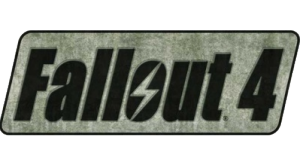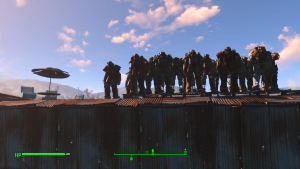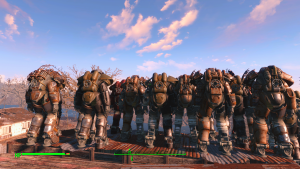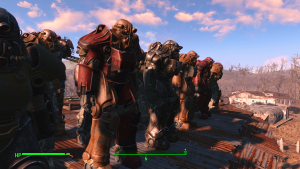 Not a happy go lucky blog entry – you may want to move along if you’re already in a down mood.
Not a happy go lucky blog entry – you may want to move along if you’re already in a down mood.
It’s funny how we forget what we were like, or what we enjoyed, or what we did. Is that just me? My memory of my life is quite bad, I don’t think about the past much (other than a few specific things), but memories are sometimes triggered by other people having conversations about stuff. I moved away from home when I was 18 (went to Uni) and never really went back. That meant my conversations from the age of 18 onwards were about new stuff. I wonder if this is what people mean by the phrase discovering yourself?
Because I mostly listened to people and spoke about how I felt about stuff, rather than the events of my childhood, I never reinforced those memories I guess. Over time, still not talking about them (not for any dire reason, just because I was always private) means they didn’t get refreshed or used, and unused memories fade. Or mine did. Now, because they’re hazy I just don’t talk about them because I don’t really have good recollections of them. So, I was going to start this blog with, I was never one for big family gatherings, and then I realised I wasn’t actually sure if that was true. Maybe I was when I was young but I grew out of them, or maybe I was always too old for my boots, too sarcastic and cynical for my shorts? Who knows. For the benefit of brevity, let’s assume I was never one for big family gatherings. I didn’t dislike my wider family as much as just disliking the process of being in a large family group.
I used to go to my grandparent’s (on my mam’s side) house for dinner (which is the midday meal where I’m from), during school dinner break when I was in my teens. It was right next to the school and my mam worked school dinners in the same school, so you know, it made sense. Kitty and George, I knew things weren’t perfect but as families do, everyone pretended it was fine for the kids. I loved my granddad’s yorkshire puddings, and his bacon sandwiches made with white bread a foot thick. Kitty didn’t do much cooking, but she let us tear up the place so we didn’t mind. They had a scary shed full of tools and stuff I didn’t understand, a garden which had a chain-link fence which overlooked the school sports field, rocks in the garden painted with white gloss paint, and one year the snow drifts were so high in their back garden, we hid in them.
I’m not sure if I didn’t know my dad’s parents at all or if they just lived too far away to be part of our lives. My dad died when I was 4, and my mam didn’t talk about it. We moved back to Newcastle after he died, because we no longer had to follow his army postings, and we made new lives near to my mam’s parents, and her 3 sisters. I never asked about my dad’s parents. I never used the word dad much, I remember once a cousin of mine calling me a bastard, in the way kids do, and I was a bit upset by that for a few days before learning what it really meant, and that it didn’t apply at all. I’m not sure I missed him, although I know my sister did, and it became apparent that despite never talking about him, my mam missed him more than pretty much anything in the world except her two kids. I was really too young to remember much, or I blocked it out of my memory, one or the other. If you can’t remember someone, it’s hard to miss them.
My granddad died before my grandmother. I visited him when he was in hospital, really unwell with pneumonia, and we spoke briefly about cricket which he loved a great deal. My enjoyment of cricket, my limited knowledge of the game comes from his love of it. I felt bad that I’d only visited him once, and that he was really ill, and probably unaware of me. What can you do. I was in my late teens. My grandmother leant on all the daughters then, as you would. I can’t even remember if I went to the funeral. How shit is that? I’m not even entirely sure if I was at university or at home. Is it because I’m callous, or because I block this stuff out? Because I have a bad memory or because I choose not to remember?
Not long after moving to Nottingham with Greté we got news that my grandmother had died. I travelled back to Newcastle for the funeral. I remember that. I remember trying to be strong for my mam, because she’d lost her mam. I probably failed. I wouldn’t say I was openly close to anyone in my family, immediate or extended. Emotionally stunted? Just too cynical? I’m not sure.
My sister had kids, and although she complained about it, my mam loved looking after them, loved having young kids around again. It gave her a new lease of life. Then they got a little older and to that age where they did stuff that my mam found hard work, like making a mess, running around putting their knees at risk, jumping off stools. She’d moved closer to my sister, and my sister basically looked out for her. I spoke to them, and saw them once a year, maybe twice, but that was it.
Then my mam had a stroke, and a fall, and although she was well enough to go home, she never really recovered. She lost her confidence, would get lost walking short distances. She was miserable. She hated life. She’d lost the man she loved in 1975 and never replaced him, her kids had grown up and moved out, and her grand-kids were growing up, and now she was stuck in her flat, no one to talk to. She had another catastrophic, fatal stroke in December 2012. I was sad, but I knew that was no longer unhappy, no longer trapped. My sister organised the funeral, I attended, tried to say some words. Saw my best friend from my youth, made promises to stay in touch, never did. Saw the whole family, cousins and aunts and uncles, nieces and nephews. Then went back to my life. I saw my sister, her husband and her kids more often after that. I made more of an effort. Not a massive increase in effort, but I think we both knew we needed to keep in touch more.
Then, in September last year (2015), my sister died. She’d had a long illness, undiagnosed, then a diagnosis, surgery and then in a very short time, a more negative diagnosis and what was ultimately a very short period of very intense illness before she passed away. Highly aggressive, pretty much untreatable, cancer. She knew what was happening, the night before she passed away she had her husband bring the kids into hospital so she could talk to them. Even in that last moment her thoughts were with her kids, making sure they knew what was going on, what they had to do.
That was it. All my immediate family (as I use the phrase) gone. Plenty of aunts, uncles, nieces and nephews, brothers and sisters-in-law, and of course, my amazing wife; but my family unit gone.
What does it mean? I’m 45 this year, and I guess it’s not an unusual position to be in, but I’m still coming to terms with it. Is there a message? Life is short, buy the shoes? I saw that today, and I think it’s true, although it’s never easy. But is that the message? Talk to your family more, live in the now, enjoy them now, but reminisce, Talk about the past, laugh about it, because if you don’t exercise those memories they’ll just fade. Don’t live in the past, you can’t change it, but bathe in it every now and again, remember how it felt. Is that trite? Probably.
Greté got me some socks and boxer shorts for Christmas (among many other wonderful gifts). She was a bit apologetic about those, but I reminded her I’d run out of other people who were going to buy them for me, so it was her job now.

 Not a happy go lucky blog entry – you may want to move along if you’re already in a down mood.
Not a happy go lucky blog entry – you may want to move along if you’re already in a down mood. I really enjoyed Fallout 3 and Fallout: New Vegas. I played both of them to death, despite the bugs. It was therefore, no surprise to me that I was super excited about Fallout 4 when I heard it was being released. The only issue really, was Bethesda, they’re not well known for releasing bug free stuff, and on top of that, I’d found
I really enjoyed Fallout 3 and Fallout: New Vegas. I played both of them to death, despite the bugs. It was therefore, no surprise to me that I was super excited about Fallout 4 when I heard it was being released. The only issue really, was Bethesda, they’re not well known for releasing bug free stuff, and on top of that, I’d found 


